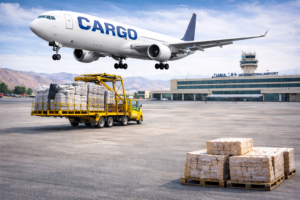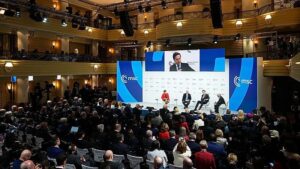KABUL (SW) – The Economic Deputy of the Prime Minister’s Office of the Islamic Emirate’s de-facto government has announced that it has prepared a new policy to support farmers, livestock owners and local production to ensure economic growth.
The policy has been sent to the Islamic Emirate Prime Minister’s Office for final approval.
In a statement released on its official X account, it has been stated that according to this policy, all ministries are required to prioritize domestic production and products.
Hamdullah Fetrat, the deputy spokesperson for the Islamic Emirate, mentioned that this policy also encourages citizens to not only use agricultural and livestock products but also to prefer locally produced cement in construction projects.
“This policy is designed to promote the marketing of local agricultural and livestock products. It calls on all ministries, other government institutions, and citizens to prioritize these products in meeting their needs,” he added.
Several economic experts, noting the dependence of most Afghan citizens on agriculture and livestock, argue that prioritizing domestic products could contribute to Afghanistan’s economic growth.
Silab Samandar, an economic expert, emphasized that alongside promoting the consumption of local products, there should also be efforts to market them for export. “This alone will not be enough for their development; markets for local products should be established. A common commercial market with all countries should be created so that products can be introduced and exported,” he said.
Another economic expert, Qutbuddin Yaqubi, also weighed in regarding this matter: “The use of domestic products strengthens the national economy, creates employment, improves agricultural conditions, and enhances food security. Implementing this policy will reduce dependence on foreign products.”
Previously, the Islamic Emirate had emphasized the use of domestic products, especially agricultural and livestock products, in all ministries, wedding halls, and events across Afghanistan. It also announced that it had increased tariffs on imported goods to support local production.






